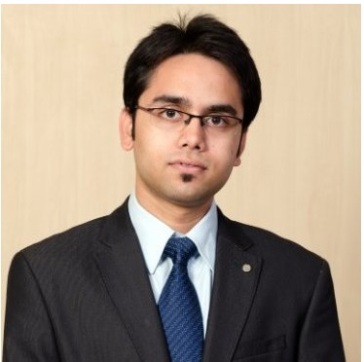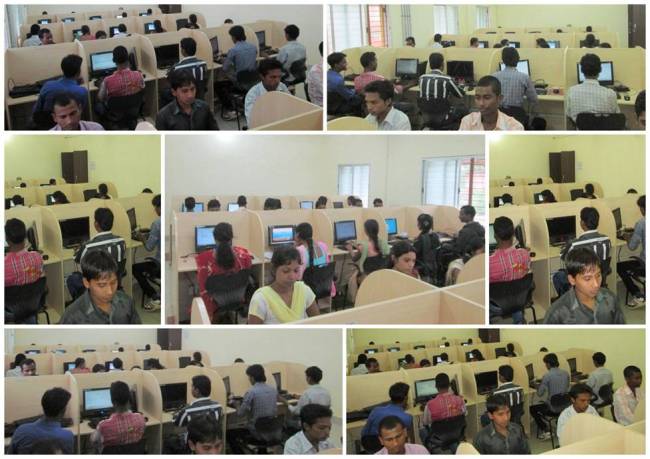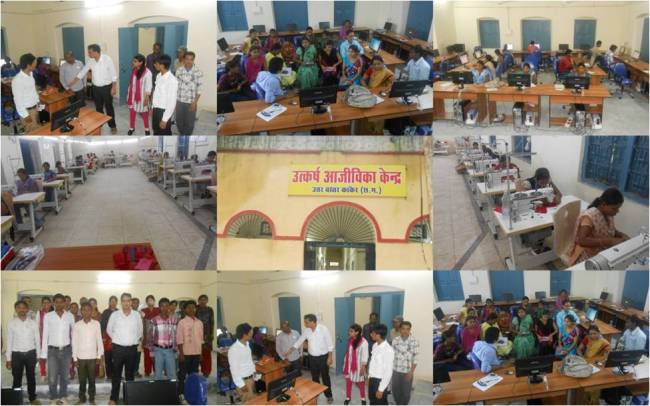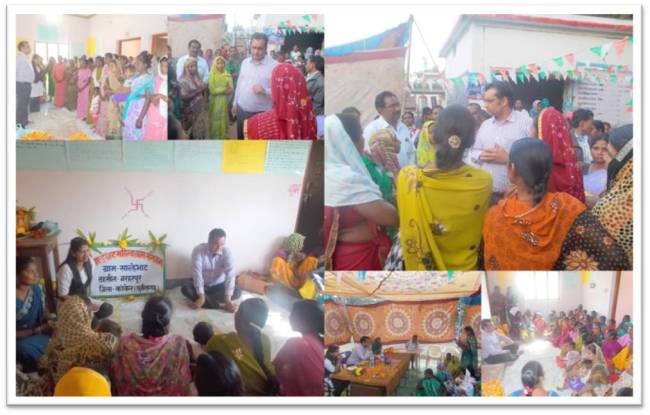Alex Paul Menon, who was district collector of Balrampur and supervisor of Suramoni since he joined the field till about a week before his demise has written to Dr. A. S. Mathew, Joint Secretary in Charge of PMRDF Scheme at Government of India. We reproduce the letter below.
_______
Dear Sir,
I write this mail with immense grief, informing you about the sad, untimely demise of Shri Suromani Boro, PMRDF, posted in Balrampur District of Chhattisgarh. A young soul has departed, leaving behind deep imprints of his commendable work in this remote, backward , naxal-affected district.
Sir, Suromani dedicated his fellowship tenure of the last 20 months in streamlining education sector under my own personal mentoring. We set out on an ambitious journey in this border district known for its demotivated staff and officers along with notoriety for teacher absenteeism and school drop – outs. Suramoni, though from a law degree background, could instantly grasp the needs of the education sector in the district and stood firm with the team in finding solutions for the problems plaguing us. Jointly we decided to work on the following fronts:
1. Motivating officers and staff to get the best out of them
2. Using IT-based solutions to tackle teacher absenteeism
3. Creating an IT-based platform to track every child’s educational progress
4. Setting up Model School Campuses that be an inspiration for other
schools and could be replicated across the State.
5. A novel Initiative to find out best brains of the district and to
train them for PMT and PET right from 9th Std
In Spite of being from the Northeast and facing challenges of language and culture, Boro swiftly adapted himself in the new setting. He turned out be an innate leader and to all our astonishment, he could pick up the difficult administrative Hindi in a short span of time and prepare reports in Hindi as well as English, and was of immense support in preparing and finalising tender documents, RFPs etc, because of his sound legal knowledge, a skill which even the best district officials lacked .
With around 1400 school campuses and 2000 schools, we decided to create at least 10% of campuses as model campuses with locally available resources. Every officer would adopt a school and convert it into a model campus in terms of physical infrastructure and other amenities. What started as 10% ended up with 25% campuses being transformed into model campuses with the support of this energetic soul, who was the Collector’s blue eyed boy and could actually drive it with lot of passion and doing lot of personal inspections and course corrections.
Boro single handedly managed implementation of COSMOS (Chhattisgarh Online School Monitoring System) – a powerful IT solution designed to check teacher absenteeism and school dropout rates. This humongous task entailed installation of biometric devices in each and every campus to capture daily login details of teachers and attendance data of students in a virtual attendance register coupled with mobile apps for leave management and real-time reports of teacher attendance. As a result of the initiative, the teacher attendance improved by 80% in 80% of our schools and the child tracking system with its 16 digit unique id provision helped in identifying 20,000 duplicate enrollments, bringing enormous savings to the exchequer. Boro’s passion for the project fetched the highest recognition of the country, National e-Governance Award, for Balrampur.
The novel initiative “Pehal” to identify best brains and give them the right foundation to be at level playing field for competitive exams was Boro’s brainchild. He was personally involved with the children and motivated them to achieve great results in 9th and 11th standard this year.
Sir, words fail me to describe the shock and grief which inundates the entire Balrampur team at the moment. This little leader, from a far off village of Assam, with his innocence and charm,created a big room in all of our hearts. He died on a Sunday, while returning from work, which itself is a statement enough to advocate for his dedication to the cause. In his entire tenure as a fellow, he had been completely devoted to Balrampur and its children, while his own people at Jonoi (Dhemaji, Assam) waited eagerly for their son to return. He is indeed an epitome of commitment to the cause of PMRDF scheme and people of Chhattisgarh.
Sir, Suramoni’s father, Shri Sukram Boro worked as a wage labourer till Suromani started earning and had moved from his village on the Arunachal Border to Dhemaji just to educate him.Despite his humble beginnings, Suromani maintained his grit and took a loan to pursue LLB from North-Eastern Hill University. He was a meritorious student throughout, displaying outstanding leadership qualities as a prefect and secretary of his hostel for all 5 years. He leaves behind his parents, younger brother, sister-in-law and a 5 year old nephew. Due to old age and medical conditions, his parents were rendered without work and his younger brother is working as a small time garage mechanic in the village itself. The entire financial responsibility for his family was on Boro’s young shoulders. With this sudden loss, his family has plunged into an abyss of grave shock and financial uncertainties. Hence, it is only right that we do our bit in providing some solace to his distressed ones. It is in this regard,that we may seek kind support and assistance from all possible sources for his family. Any help – in cash or in kind – may not fill the void created, but will go a long way in helping the family to bear the cruelties of this unfortunate incident.
Sincerely,
Alex Paul Menon.
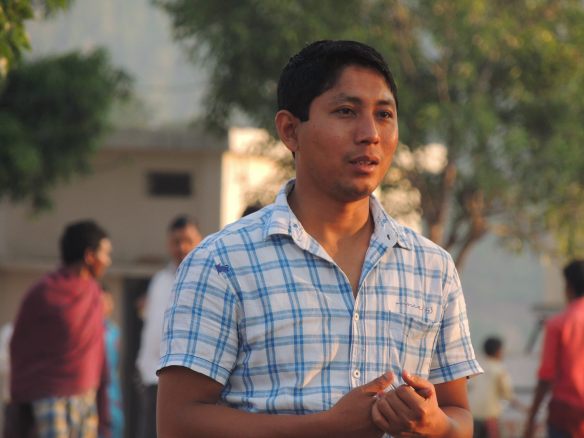 Suramoni Boro
Suramoni Boro
